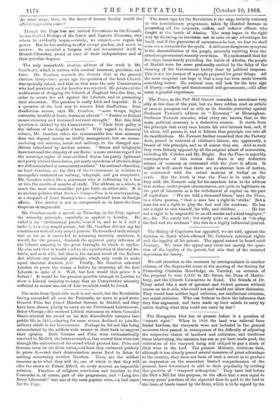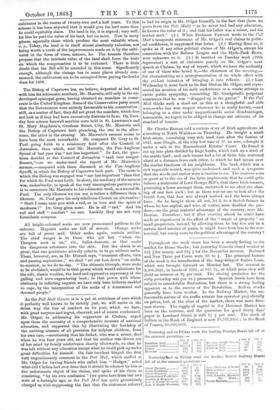The Hungarian Diet has at present before it a question
of "tenant right." When in 1848 the land was relieved from feudal burdens, the vineyards were not included in the general measures then passed, in consequence of the difficulty of adjusting the respective claims of landlord and cultivator, and troublous times intervening, the omission has not as yet been made good, the cultivators of the vineyard being still obliged to pay a ninth of their wine to the lord. The present Ministry, conscious that, although it has already passed several measures of great advantage to the country, they have not been of such a nature as to produce an impression on the somewhat limited comprehension of the peasant, have determined to add to their popularity by settling this question of "vineyard redemption." They have laid before the Diet a Bill for this purpose, to the effect that a sum equal to twenty years' purchase of the siguorial dues be paid to the lord in the form of bonds issued by the State, which is to be repaid by the cultivator in the course of twenty-two and a half years. To this -scheme it has been objected that it would give the lord more than he could equitably claim. The land is his, it is argued ; very well, let him be paid the value of his land, but no more. Now in many places, especially those which produce the most valuable wines, • e. g., Tokay, the land is in itself almost absolutely valueless, not being worth a tenth of the improvements made on it by the culti- -vator in the form of vines, manure, &c. The tenants therefore propose that the intrinsic value of the land shall form the basis -on which the compensation is to be reckoned. There is little doubt that the Bill will be amended in this sense. Significantly .enough, although the vintage has in some places already com- menced, the cultivators are to be exempted from paying the feudal -dues for 1868.



































 Previous page
Previous page